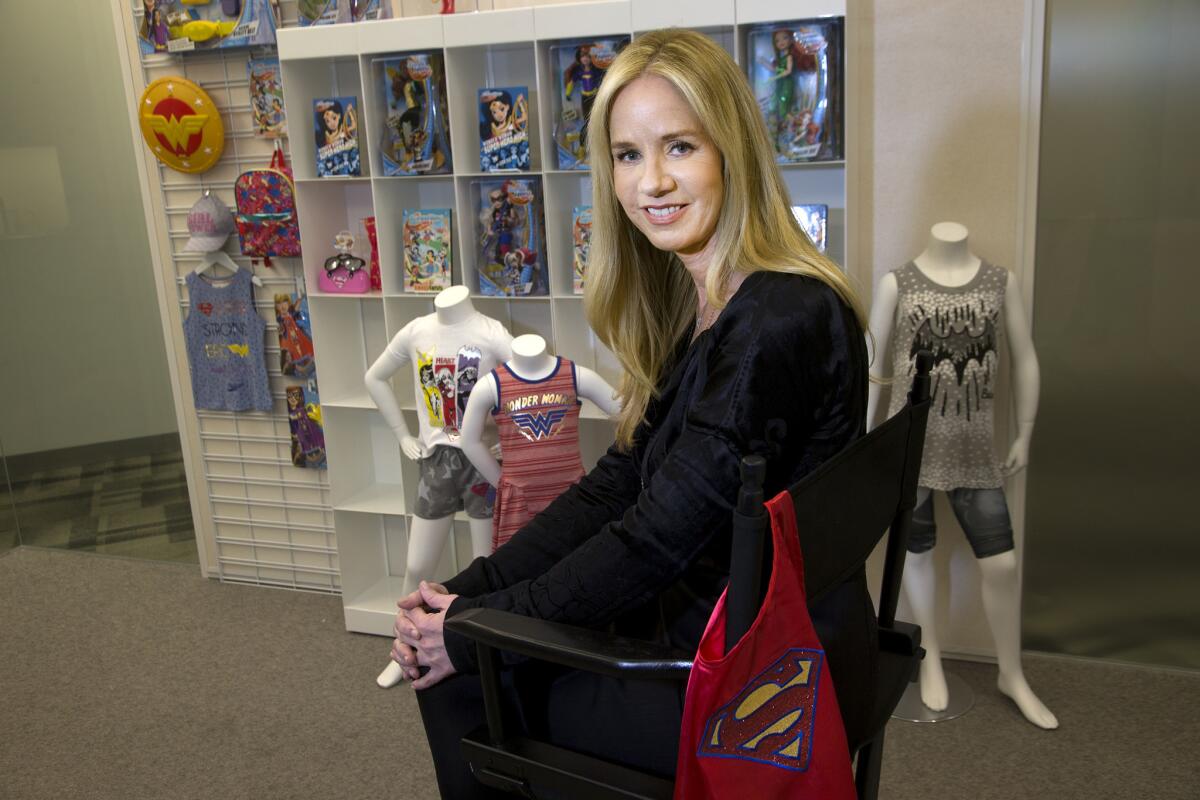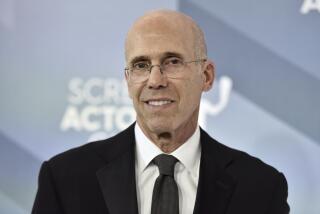Quibi loses another high-profile executive

Streaming start-up Quibi is losing its head of content operations, the latest in a string of executive departures before its launch in April.
Diane Nelson, the former president of DC Entertainment, is leaving the company and her duties will be distributed across her team, Quibi said Tuesday.
Nelson, a well-regarded former Warner Bros. executive who helped guide the company’s DC Entertainment division, joined Quibi less than a year ago and has been an important part of the Hollywood company’s executive ranks.
“Diane Nelson has been a valued member of the team, helping us build a strong organization full of exceptional people,” Quibi Chairman Jeffrey Katzenberg said in a statement. “We wish her well and support her as she focuses on other priorities, and thank her for her many contributions to Quibi.”
Nelson could not be reached for comment. But in an email to colleagues she cited personal reasons for her departure.
“Given several personal priorities and upon much reflection, I have decided to resign from Quibi,” Nelson wrote. “I will be taking the next few months to make sure the people I love are well and settled and then will return my attention to my next chapter of life. I expect I may not wade back into the entertainment industry, certainly not in any full-time way.”
Nelson is one of several high-profile executives who have exited Quibi in recent months. Other executives who’ve left include Janice Min, head of daily content, in September; and Tim Connolly, the former Hulu executive who was head of partnerships and distribution, in August.
The departures come as the company is grappling with the challenges of launching a start-up and plotting a strategy to attract subscribers for its mobile entertainment offerings in a fiercely competitive streaming environment.
Quibi aims to start a subscription streaming service in April that will feature programs told in short chapters. Stories by award-winning directors such as Steven Spielberg will be told in 10-minute segments. The platform will also offer news shows by iconic organizations such as “60 Minutes” told in a weekly six-minute segment called “60 in 6.”
Quibi plans to charge about $5 a month with ads and $8 without ads. Unlike other streaming services, the content is designed for mobile phones. Quibi’s target audience is people ages 25 to 35, and its larger demographic could include people ages 18 to 44.
The start-up raised $1 billion in funding from major studios and investors and has already sold out its $150 million ad inventory for its first year. The company recently partnered with T-Mobile to give it a broad distribution platform.
But some analysts say that Quibi may be off to a rocky start with the executive departures.
“It makes you question how stable they are going to be,” said Ross Benes, an analyst with research firm eMarketer. “It only makes it more difficult to carve out that niche space for yourself when you are constantly having to make leadership changes.”
Quibi will be entering a crowded market of streaming platforms next year. In November, Disney and Apple launched their subscription video services and Netflix continues to pour money into content, spending $15 billion this year.
Quibi believes there is demand for the type of entertainment it is creating, especially among people who are on the go and looking at their phones to pass the time. But past attempts by other companies like Verizon’s mobile-first video platform go90, failed to capture a large enough audience.
Billed as a combination of Silicon Valley and Hollywood, Quibi is led by Katzenberg and Chief Executive Meg Whitman, the veteran tech executive and former chief executive of Hewlett-Packard, who bring very different backgrounds to the venture.
In her memo to staff, Nelson said she intended to “move into semi-retirement, where I can travel with my husband and sons, explore new areas of learning and pursue board work for companies inside and outside of our industry.”
Staff writer Ryan Faughnder contributed to this report.
More to Read
Inside the business of entertainment
The Wide Shot brings you news, analysis and insights on everything from streaming wars to production — and what it all means for the future.
You may occasionally receive promotional content from the Los Angeles Times.











